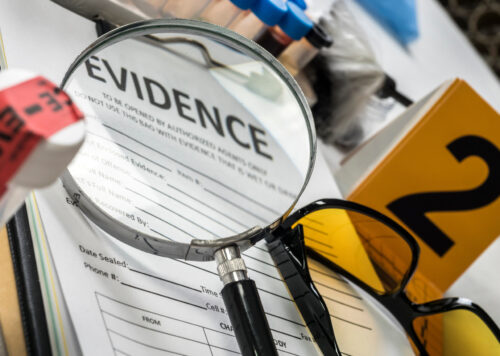
In a criminal case, before a trial commences, a pretrial hearing will be conducted. During this process, the defense and prosecution can call witnesses and introduce evidence. During a pretrial hearing, a lawyer can use various tactics such as filing a motion to suppress evidence to defend your rights and interests. Motions to suppress evidence can be extremely powerful and beneficial for your case as certain evidence may be prohibited from being used against you during the trial. Keep reading to learn more about how filing a motion to suppress evidence can help your criminal case. In addition, contact a proficient Chesterfield Criminal Defense Lawyer who can represent your interests in court.
What is a motion to suppress evidence?
A lawyer can file a motion to suppress evidence during the pretrial stage of a criminal proceeding. Essentially, motions to suppress evidence are a type of request made to a judge asking to have certain evidence excluded from being presented and heard during a trial. Filing a motion to suppress evidence is an extremely powerful tool a lawyer can use to prevent the prosecution from using evidence against a defendant in violation of their basic constitutional rights.
What evidence may be excluded during a criminal proceeding?
In a criminal case, there are only certain grounds to file a motion to suppress evidence. Typically, a judge will only grant the defendant’s motion if certain evidence was illegally obtained through search and seizure, violating your Fourth Amendment right. Without a warrant or probable cause, any evidence unlawfully recovered cannot be used against you in a court of law. Rather, this evidence would be thrown out as it is inadmissible. For example, if a police officer stops two people walking down the street without probable cause, anything found on them such as drugs, cannot be used in court as evidence against them, as the officer did not have a reasonable motive for stopping them. Under the Fourth Amendment to the U.S. Constitution, all persons are protected from unreasonable searches and seizures. Moreover, the following include but are not limited to evidence that can be excluded:
- Confessions
- Financial records
- Photographs, video footage, and audio recordings
- Witness testimony
- Statements
- Chemical testing results
- Drugs and weapons
The above-listed types of evidence may be excluded from being presented and heard during a trial if it was unlawfully obtained. This type of motion can limit the amount of evidence prosecutors can use against you which can help weaken their case. Ultimately, filing a motion to suppress evidence in your criminal case may result in the charges being dismissed as there may not be enough evidence to prosecute you.
If you or a loved one is facing a criminal conviction, it is imperative to retain the legal services of an adept Chesterfield County criminal defense lawyer who can help you understand your rights. Our firm is committed to helping our clients reach a favorable outcome.